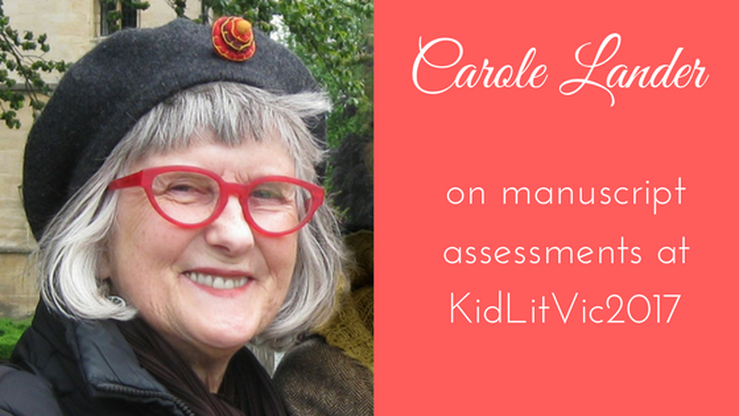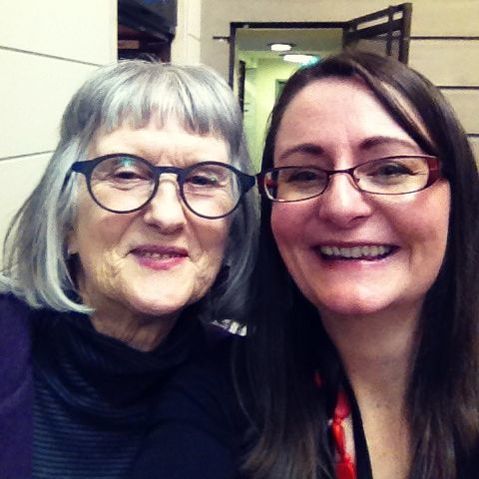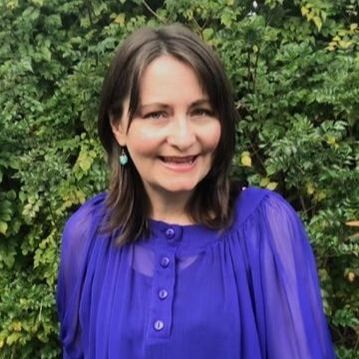Guest blogger, Carole LanderJournalist and author KidLitVic–Meet the Publishers–number 2 What can I say? The adrenaline ran high all day. I'm an emerging writer with several published short stories and one chapter book. But I aspire to have a novel published by one of the 'big' names–the ones who come along to talk to us at KidLitVic. I'm a member of SCWBI and attend Writers Victoria workshops where I often hear it said that to have your work in front of one of these publishers is 'gold'. So for me, the highlight of the KidLitVic days are the manuscript assessments. The organisers of the day give you very clear directions on what to submit. This year it was: author bio (max 300 words); story synopsis (max 50 words–which is very short and forced me to condense my story line into the key points); first 10 pages of manuscript (double-spaced). The assessment fee is $80 and you have to be on the computer at the moment the applications open if you want to secure a particular publisher! I'm sure I don't need to tell you that finding out the best person for an assessment is by researching the publishers' websites to see what kind of books they produce. Visit bookshops and libraries too. How to pick your publisher My 'brand' (to quote Lisa Berryman from Harper Collins) is diversity. In my chapter books, I put this front and centre. Jen Storer told me that I should aim for publishers who accept books of an educational nature. That's why I chose a publisher who publishes educational books last year. The publisher gave me valuable feedback on paring back my words and this taught me a lot about 'showing' rather than 'telling'. She encouraged me to keep going and expressed interest in seeing the finished work. That was extremely encouraging! This year I chose someone else entirely for my assessment. I walked into the room–which is quite small and filled with publishers at small tables–found my publisher and sat down in a state of high excitement! She welcomed me warmly (as did the publisher from last year) and praised my writing. I recall being told so many times to always praise a colleague's writing before adding the criticism! She also couched her criticism in a friendly way, pointing out that I would be advised to cut down the number of voices telling my story. Unfortunately, she didn't suggest that I send her the finished work but I can live with that. I'm fully aware of the competitive field we're all in. An opportunity not to be missed To sum up the experience of these manuscript assessments, they're well worth it because they provide rare opportunities to hear from the experts and that beats sending in submissions to slush piles and never hearing a thing in response. And I'm also told that they like doing them because they're always looking for new authors and may find one at KidLitVic. It's important not to be daunted by comments from publishers at these assessments. My advice is to accept the positive ones with grace, take note of the less positive ones and keep writing, revising and pitching. When I looked around the room at all those writers and illustrators I realised once again what a competitive field this is. However, if we have that creative urge, we must keep going. Good luck to everyone! And if you would like to read more on this topic, I have a recent blog article on Creative Kids Tales , Aiming for Perfection -- As it Applies to Fiction Writers. About Carole: Carole Lander discovered her passion for writing for children when she trained as a writer and editor at RMIT in Melbourne (2010–2012). After many years as an actor and drama teacher, it came as no surprise that her imagination could run wild on the page – as well as on the stage. By sheer coincidence, she has written several books and articles on the topic of disability. It started when she agreed to write and publish a book about people who live with conditions of dwarfism (Little People Big Lives). Raising awareness about contemporary issues is what she often does as a journalist and, in her children’s fictions she introduces diversity through the narrative without making the stories overtly about social issues. Full details of her publications can be found on her website: Writing With Checkword For previous guest blog posts by attendees to KidLitVic: KidLitVic2017 Lessons by Pamela Uekerman reflects on the conference as a whole. Full Steam Ahead. KidLitVic2017 by Karen Hendriks covers the various panels on the day. KidLitVic2017: A Reflection by Juliet Sampson chats about her observations and the changes in publishing trends. For more coverage and different perspectives: From an organiser's perspective: The KidLitVic 2017- Meet the Publishers Conference Wrap-Up by Nicky Johnson Tania McCartney gives her view of KidLit, along with what she is up too on her blog, Works-in-progress, KidLitVic and Crystal Kite! Romi Sharp reflects on her experiences on her blog, KidLitVic2017 Reflections Tabitha Page talks about her first KidLitVic experience and how AWESOME it was. If you enjoyed this post feel free to like and share.
2 Comments
6/6/2017 11:06:58 am
Hi Pauline. I'm glad you found this useful. Perhaps you will have a go next year! Carole
Reply
Your comment will be posted after it is approved.
Leave a Reply. |
AuthorOn my blog you will find: Categories
All
Click to set custom HTML
|



 RSS Feed
RSS Feed